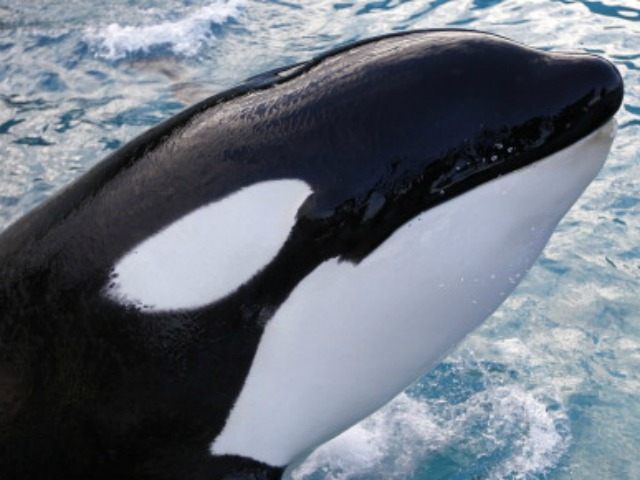First it was the chimps. Then the dolphins. And now killer whales are being put forward as candidates for personhood. Opponents of human exceptionalism—the age-old belief that human beings occupy a unique place in creation—cannot seem to rest until they have proved that we are really not so very special after all.
Salon Magazine, a bastion of political correctness, has now come down on the side of the orca. The more we learn about killer whales, a recent article states, “the more that our assumption of innate superiority looks like a presumption.”
“Orcas, with their big brains, complex social structures, mysterious communications, and mind-boggling sixth sense, by their very existence, challenge the long-standing belief that human beings are the planet’s only intelligent occupants,” it reads.
The problem is that we have an overly anthropocentric view of personhood, the article suggests, which leads us to overvalue the achievements of human beings vis-à-vis other animals. If animals don’t measure up by our standards, maybe the standards need to be changed.
“Because personhood has always been associated with intelligence, a less anthropocentric definition of intelligence yields a slightly reconfigured understanding of personhood as well,” the essay contends.
The article correctly identifies the idea of human singularity to be a product of “Western thought,” meaning the civilization dominated by the Judeo-Christian understanding of human beings as made in the image and likeness of God. From this theological understanding came both the notion of human exceptionalism and that of fundamental human equality, two foundation stones of the Western world.
Outside of this worldview, neither human exceptionalism nor human equality have gained much traction. Different conceptions of the world yield radically different understandings of human beings and their place in that world.
In India, for instance, dolphins were legally declared to be “persons” in a 2013 ruling, and India’s Ministry of Environment and Forests outlawed the keeping of captive dolphins for public entertainment anywhere in the country.
The ministry declared that “dolphins should be seen as ‘non-human persons’ and as such should have their own specific rights and is morally unacceptable to keep them captive for entertainment purpose.”
Contemporaneously, although caste-based discrimination is technically illegal in India, in point of fact the caste system endures to this day. The achuta, or untouchables, “are shunned, insulted, banned from temples and higher caste homes, made to eat and drink from separate utensils in public places, and, in extreme but not uncommon cases, are raped, burned, lynched, and gunned down.”
Similarly, in the post-Christian West that tries desperately to unshackle itself from its religious roots, personhood can be denied to unborn human babies, while it is attributed to animals.
Australian atheist and bioethicist Peter Singer ignited a firestorm in 1993, when he proposed that no newborn baby should be considered a person until 30 days after birth and that the attending physician should kill some disabled babies on the spot.
Though Singer’s advocacy of infanticide was new, the ideas underlying it weren’t. Already in 1979 he had written that human babies are not persons and “the life of a newborn is of less value than the life of a pig, a dog, or a chimpanzee.”
As the Judeo-Christian worldview is shunned more and more—for instance, in Friday’s abhorrent Supreme Court ruling on same-sex marriage—new anthropologies will have to step forward to take its place.
Whether this brave new world will be friendlier to human beings is doubtful indeed. But at least the orca will be protected.
Follow Thomas D. Williams on Twitter @tdwilliamsrome

COMMENTS
Please let us know if you're having issues with commenting.